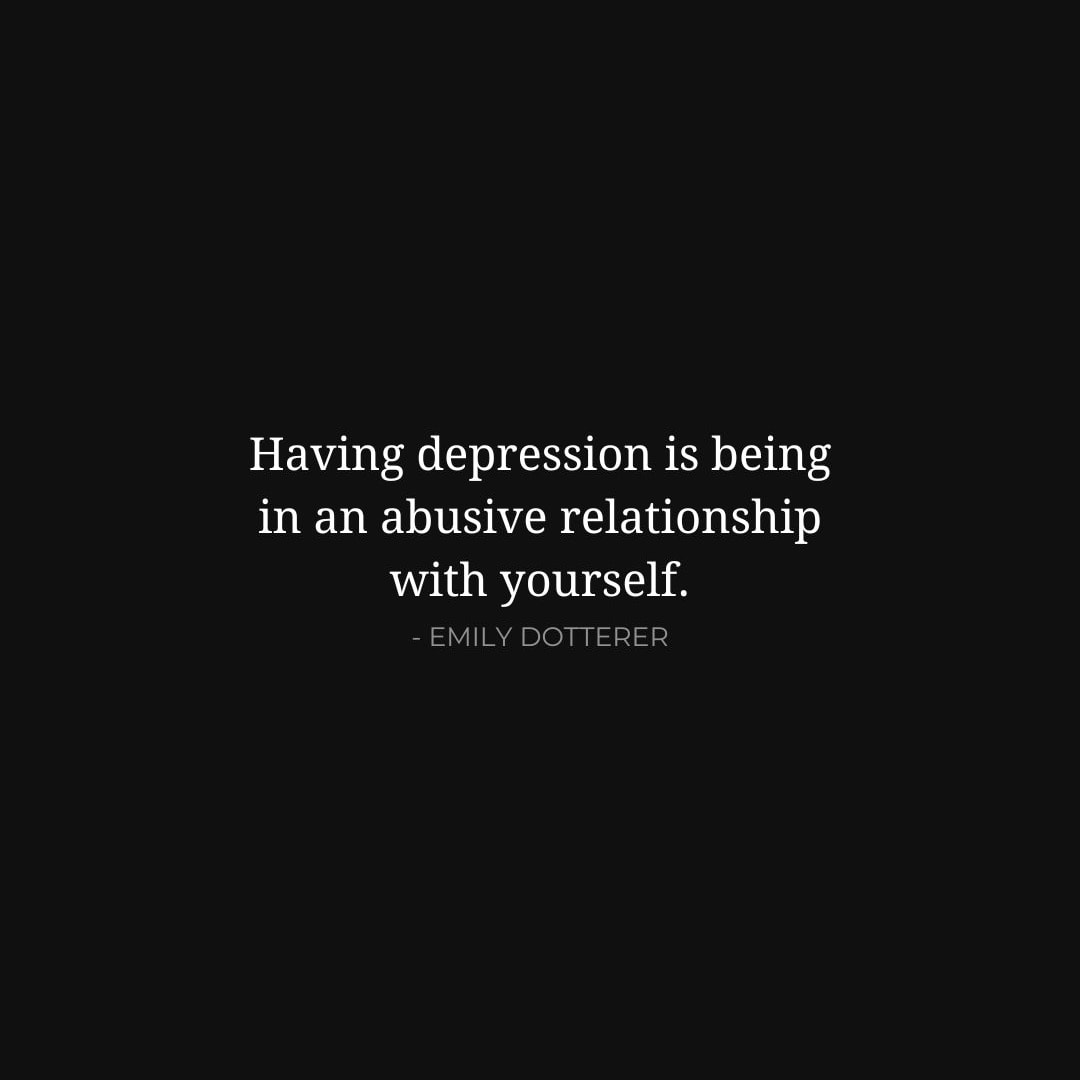Having depression is being in an abusive relationship with yourself.
– Emily Dotterer
What is the meaning of the quote?
This quote by Emily Dotterer poignantly describes the internal struggle and self-destructive patterns that can characterize living with depression.
Comparing depression to an abusive relationship with oneself underscores the harmful and damaging effects of the condition on one’s mental and emotional well-being. It suggests that depression can manifest as a constant cycle of negative self-talk, self-criticism, and self-sabotage, mirroring the dynamics of abuse in interpersonal relationships.
In an abusive relationship, the victim may experience feelings of worthlessness, powerlessness, and hopelessness, often feeling trapped and unable to break free from the cycle of abuse. Similarly, individuals with depression may internalize feelings of inadequacy, self-doubt, and despair, leading to a sense of being trapped in a harmful and self-destructive mindset.
Moreover, the comparison highlights the insidious nature of depression, which can distort one’s perception of themselves and perpetuate a cycle of self-harm and emotional turmoil. It underscores the importance of recognizing and addressing the damaging effects of depression on self-esteem, self-worth, and overall mental health.
Overall, the quote offers a powerful analogy to convey the profound impact of depression on one’s relationship with oneself, emphasizing the need for self-compassion, self-care, and support in overcoming its challenges.

